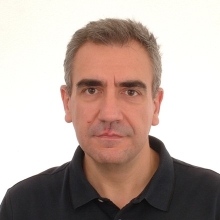EECS Seminar: Radio Localization enabled by 5G Technologies and Beyond

Professor
Department of Telecommunications and Systems Engineering
Universitat Autonoma de Barcelona
Abstract: Mm-wave and massive MIMO technologies are some of the elements that have enabled the increase of the communication capacity and reliability, and the reduction of the latency in 5G systems. These technologies have also made possible the advent of new positioning solutions characterized by very high accuracy, provision of orientation information, and inclusion of sensing capabilities, with reduced network-side infrastructure. The term “5G Localization” was coined to encompass this class of solutions, which have already impacted the standardization process. Elements considered in the ongoing research toward 6G systems, such as reconfigurable intelligent surfaces (RIS), are also showing large potential for localization, as they extend the position availability to problems that were previously unfeasible. First, this talk will briefly present the foundations of radio-based positioning and an overview of the evolution of localization in cellular standards. Second, it will dwell on some specificities of 5G localization: single base-station and carrier-phase positioning, 6D problems and signal design. Finally, it will address how the presence of RIS in the near or far field can be exploited for localization.
Bio: Gonzalo Seco-Granados received his doctorate in electrical engineering from the Universitat Politecnica de Catalunya, Spain, in 2000, and an MBA degree from the IESE Business School, Spain, in 2002. From 2002 to 2005, he was on the technical staff of the European Space Agency (The Netherlands), where he was involved in the design of the Galileo (the “European GPS”) system and receivers. In 2015, 2019 and 2022, he was a Fulbright Visiting Scholar at UCI. He is currently a professor with the Department of Telecommunication Engineering, Universitat Autonoma de Barcelona, where he was vice dean of the Engineering School, from 2011 to 2019. His research interests include localization based on GNSS and cellular systems. In the case of cellular systems, he contributed to the seminal works on “5G positioning.” In the area of GPS, he has developed techniques to increase the robustness against interference, multipath and spoofing attacks, and also to improve energy efficiency of GPS receivers. He is co-founder of Loctio, a startup providing low-energy GNSS positioning solutions for IoT. He serves as a member of the IEEE Signal Processing Society - Sensor Array and Multichannel Technical Committee (SAM TC), and of the EURASIP Signal Processing for Multisensor Systems Technical Committee, since 2018 and 2022, respectively. Since 2019, he has served as president of the Spanish Chapter of the IEEE Aerospace and Electronic Systems Society.
Share
Upcoming Events
-
EECS 294 Seminar: Programming Light Diffraction for Information Processing and Computational Imaging
-
MAE 298 SEMINAR: Stretchable Electronics for Soft Biological and Robotic Systems
-
CBE Distinguished Lecture/CBE 298 Seminar: Computational Design of Peptides as Detectors, Sensors and Drugs
-
MSE 298 Seminar: Molecular Modeling in the Age of AI - From Energy Materials to Device Simulations
-
CBE 298 Seminar: Metal Electrodeposition for Modern Mineral Refining
